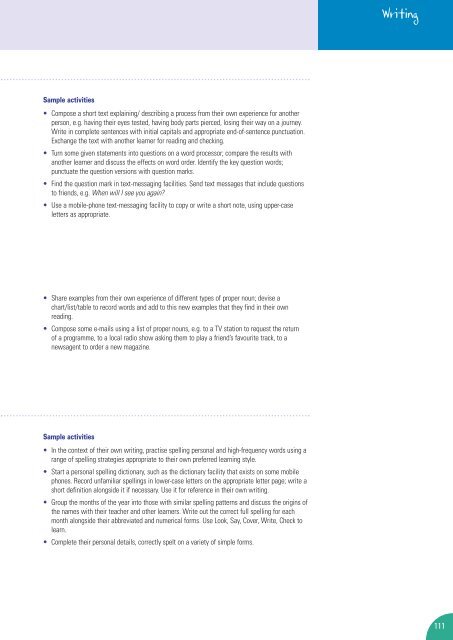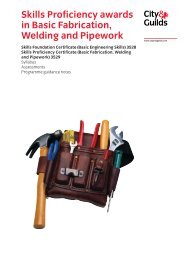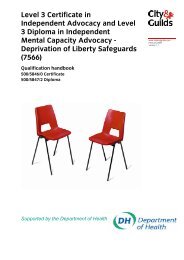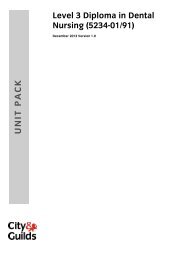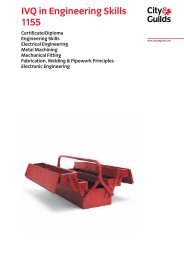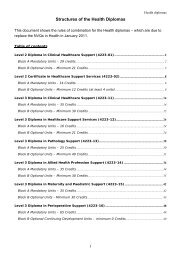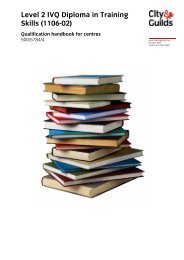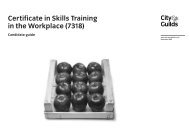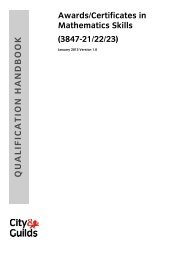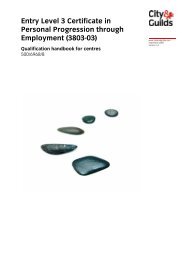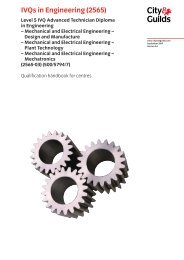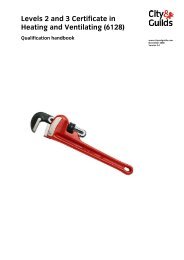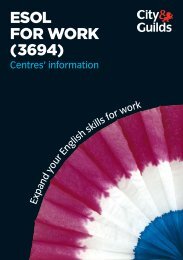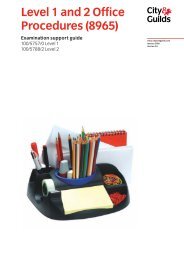Adult Literacy Core Curriculum - Nationally developed Skills for Life ...
Adult Literacy Core Curriculum - Nationally developed Skills for Life ...
Adult Literacy Core Curriculum - Nationally developed Skills for Life ...
You also want an ePaper? Increase the reach of your titles
YUMPU automatically turns print PDFs into web optimized ePapers that Google loves.
Sample activities<br />
• Compose a short text explaining/ describing a process from their own experience <strong>for</strong> another<br />
person, e.g. having their eyes tested, having body parts pierced, losing their way on a journey.<br />
Write in complete sentences with initial capitals and appropriate end-of-sentence punctuation.<br />
Exchange the text with another learner <strong>for</strong> reading and checking.<br />
• Turn some given statements into questions on a word processor; compare the results with<br />
another learner and discuss the effects on word order. Identify the key question words;<br />
punctuate the question versions with question marks.<br />
• Find the question mark in text-messaging facilities. Send text messages that include questions<br />
to friends, e.g. When will I see you again?<br />
• Use a mobile-phone text-messaging facility to copy or write a short note, using upper-case<br />
letters as appropriate.<br />
• Share examples from their own experience of different types of proper noun; devise a<br />
chart/list/table to record words and add to this new examples that they find in their own<br />
reading.<br />
• Compose some e-mails using a list of proper nouns, e.g. to a TV station to request the return<br />
of a programme, to a local radio show asking them to play a friend’s favourite track, to a<br />
newsagent to order a new magazine.<br />
Sample activities<br />
• In the context of their own writing, practise spelling personal and high-frequency words using a<br />
range of spelling strategies appropriate to their own preferred learning style.<br />
• Start a personal spelling dictionary, such as the dictionary facility that exists on some mobile<br />
phones. Record unfamiliar spellings in lower-case letters on the appropriate letter page; write a<br />
short definition alongside it if necessary. Use it <strong>for</strong> reference in their own writing.<br />
• Group the months of the year into those with similar spelling patterns and discuss the origins of<br />
the names with their teacher and other learners. Write out the correct full spelling <strong>for</strong> each<br />
month alongside their abbreviated and numerical <strong>for</strong>ms. Use Look, Say, Cover, Write, Check to<br />
learn.<br />
• Complete their personal details, correctly spelt on a variety of simple <strong>for</strong>ms.<br />
Writing<br />
111


